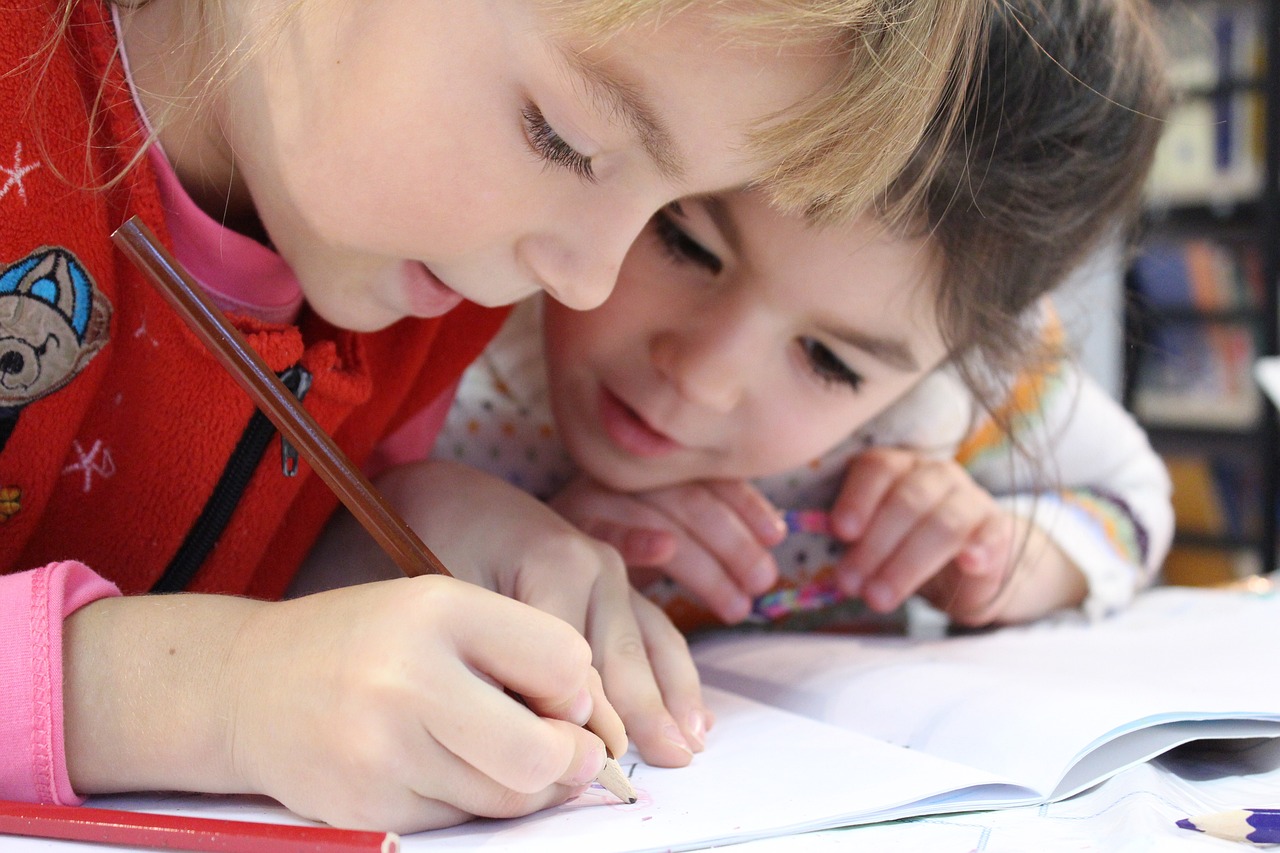As parents, one responsibility that shouldn’t be left to chance is helping our kiddos build and sustain healthy relationships. Relationships with their peers, relationships within the family unit, the extended family unit, with other adults or people in general; they’re all important. Strong, supportive relationships are fundamental to our children's emotional wellbeing and personal growth. They provide the foundation for happiness, resilience, and success in various aspects of life. This article will explore how to help your child develop, build, and sustain healthy relationships. Let’s look at how we can use the CRASHING INTO POTENTIAL Framework: Choices, Mindset, Goals, and Perseverance to achieve this.
Understanding Healthy Relationships
Healthy relationships are built on trust, respect, empathy, and communication. They involve mutual support and a genuine interest in each other's wellbeing. Teaching children the importance of these elements is the first step in helping them form positive connections with others.
The Role of Parents
Parents play a key role in modelling and teaching relationship skills. Children often mimic the behaviours they observe at home. Again, monkey see, monkey do as I’ve said many times before. Demonstrating respectful communication, empathy, and conflict resolution in your interactions sets a powerful example for your children to follow.
Key Components of Healthy Relationships
-
Trust:
Trust is the foundation of any healthy relationship. It is built through consistent and reliable behaviour. -
Respect:
: Respect involves recognising and valuing each other’s differences and boundaries. -
Empathy:
: Empathy is the ability to understand and share the feelings of another person. -
Communication:
: Open, honest, and respectful communication is essential for resolving conflicts and building strong connections.
Embed these skills in your child’s development and they’re well on their way to being a likeable human being.
Teaching Children to Make Positive Relationship Decisions
Teaching children to make wise choices in their relationships is crucial. This involves helping them recognize the qualities of a good friend and the signs of unhealthy relationships. Here are five qualities of any good friend:
- Trustworthiness
- Loyalty
- Empathy
- Honesty
- Supportiveness
Identifying Positive Influences
Encourage your children to surround themselves with positive influences. Discuss the qualities of a good friend, as stated above. Help them understand that a good friend supports their goals and encourages them to be their best selves.
Recognising Unhealthy Relationships
Educate your children about the signs of unhealthy relationships, such as manipulation, disrespect, and a lack of support. Teach them to trust their instincts and to seek help if they feel uncomfortable or unsafe in any relationship.
Setting Boundaries
Help your children understand the importance of setting and respecting boundaries. Encourage them to communicate their limits clearly and to respect the boundaries set by others. This practice is essential for maintaining healthy and respectful relationships.
Fostering a Positive Attitude Towards Relationships
A positive mindset is critical for developing healthy relationships. Teach your children to approach relationships with an open heart and a positive attitude. If I can recall one lesson about relationships that I’ve picked up from my time on Earth, it’s to not judge a book by its cover. Children (and some adults that act like children) are very quick to dismiss people if they don’t fit their ideal mould, which can be made prior to the beginning of the relationship. This can be achieved in several ways…
Building Self-Esteem
Help your children build self-esteem by acknowledging their strengths and encouraging them to pursue their interests. A strong sense of self-worth enables them to form relationships based on mutual respect and prevents any insecurities from getting in the way.
Embracing Empathy
Teach your children the value of empathy. Encourage them to put themselves in others' shoes and to understand different perspectives and people from different backgrounds. This practice helps them build deeper connections and resolve conflicts more effectively.
Promoting Positivity
Encourage your children to maintain a positive outlook on relationships (and in life for that matter). Teach them that while conflicts are natural, they can be resolved through effective communication and understanding. Reinforce the idea that healthy relationships contribute to their overall happiness and wellbeing.
Setting Relationship Goals
Setting goals is a powerful tool for developing healthy relationships. Guide your children in establishing clear and achievable relationship goals.
Short-Term Goals
Help your children set short-term goals that focus on immediate improvements in their relationships. These could include talking to new people, making a new friend, improving communication skills, or resolving a current conflict.
Long-Term Goals
Encourage your children to set long-term goals that aim at building deeper and more meaningful connections. These goals might involve developing trust, practising empathy, and maintaining strong friendships over time.
Celebrating Achievements
Celebrate your children's achievements in their relationship goals. Acknowledge their efforts and successes, no matter how small. This recognition boosts their confidence and motivates them to continue working towards healthy relationships.
Encouraging Persistence in Building Relationships
Building and maintaining healthy relationships requires perseverance. Explain that things like trust are developed over time and the key to building relationships is commitment. Rome is a big city… that has been around for thousands of years… it wasn’t built in a day. Teach your children the importance of persistence in overcoming challenges and nurturing their connections.
Handling Conflicts
Equip your children with the skills to handle conflicts constructively. Teach them to stay calm, listen actively, and communicate their feelings openly. Emphasise that conflicts are opportunities for growth and learning.
Overcoming Setbacks
Help your children understand that setbacks are a natural part of relationships. Encourage them to view these setbacks as learning experiences rather than failures. Teach them to stay committed to their relationship goals and to keep trying, even when the going gets tough.
Developing Resilience
Foster resilience in your children by teaching them to bounce back from disappointments. Encourage them to maintain a positive attitude and to seek support when needed. Resilience is key to sustaining healthy relationships over the long run.
Modelling Healthy Relationships
As parents, you are the most influential role models for your children. Demonstrate healthy relationship behaviours in your own interactions with family members, friends, and your partner. Just other people in general really! Show respect, empathy, and effective communication in your daily interactions. Remember… monkey see, monkey do.
Demonstrating Respect
Show your children what respect looks like by valuing the opinions of others, listening actively, and resolving conflicts calmly and respectfully. Your actions speak louder than words and will set a strong example for your children to follow. This means, if you’re the plate-throwing type, maybe hold off on that one next time your head becomes steamy.
Practicing Empathy
Demonstrate empathy in your relationships. Show your children how to understand and share the feelings of others. This practice helps them develop the emotional intelligence needed for healthy relationships.
Communicating Effectively
Model effective communication by expressing your feelings and needs clearly and listening to others with an open mind. Teach your children the importance of honest and respectful communication in building and maintaining strong relationships.
Encouraging Social Skills Development
Social skills are essential for developing healthy relationships. Help your children develop these skills through practice and positive reinforcement.
Role-Playing
Engage in role-playing activities with your children to practice social scenarios. This practice helps them develop the confidence and skills needed to navigate different social situations. This can be done by simply asking questions around the dinner table, in the car, or at the climax of their favourite movie (or not), without the need to dress up and put on a voice.
Providing Feedback
Give your children constructive feedback on their social interactions. Praise their positive behaviours and gently guide them on areas where they can improve. This feedback helps them learn and grow in their social skills.
Encouraging Group Activities
Encourage your children to participate in group activities, such as team sports, clubs, or community events. These activities provide opportunities for them to practice their social skills and build relationships in a supportive environment.
Creating a Supportive Environment
In the home is where it all begins. Creating a supportive home environment is crucial for your children’s relationship development. Ensure that your home is a safe space where they feel valued, heard, and supported. Siblings will move mountains just to get in the way of this, but don’t let them.
Open Communication
Foster open communication by encouraging your children to share their thoughts and feelings. Listen actively and provide support and guidance as needed. Open communication builds trust and strengthens your relationship with your children, and theirs with the rest of the world.
Positive Reinforcement
Use positive reinforcement to encourage healthy relationship behaviours. Praise your children for their efforts in building and maintaining relationships. This reinforcement boosts their confidence and motivates them to continue their positive behaviours.
Providing Support
Be a source of support for your children in their relationship challenges. Offer guidance, comfort, and encouragement as they navigate their social interactions. Your support helps them feel secure and confident in their relationship-building efforts.
Building healthy relationships is vital for happiness, mental health, and overall wellbeing. What really stands out to me is we need to teach our kids to treat others the way they’d like to be treated. This goes back to the four things that I said at the start – Trust, Respect, Empathy, and Communication. Nail these and it’s hard to go wrong.





